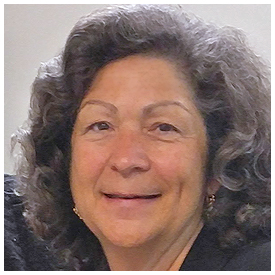
Historic City News received a copy of a 16-page ruling Friday from Chief U.S. District Judge Mark Walker placing a requirement on St Johns County Supervisor of Elections Vicky Oakes, as well as state and county elections officials in thirty-one additional Florida counties, to furnish Spanish and English language ballots before the 2020 Presidential Primary Election.
The injunction orders full compliance by St Johns County elections officials as well those in Alachua, Bay, Brevard, Charlotte, Citrus, Clay, Columbia, Duval, Escambia, Flagler, Hernando, Highlands, Indian River, Jackson, Lake, Leon, Levy, Manatee, Marion, Martin, Monroe, Okaloosa, Okeechobee, Pasco, Putnam, St Lucie, Santa Rosa, Sarasota, Sumter, Taylor, and Wakulla counties, not later than March 2020.
“Florida has a significant Spanish-speaking population,” Governor Ron DeSantis remarked after the ruling was handed down. “Our state is home to many Puerto Rican citizens who moved here after the devastation of Hurricane Maria.”
Although it was too late to implement the conditions of Friday’s order prior to the elections in November 2018, Judge Walker issued a preliminary ruling in September 2018 on lawsuits brought by LatinoJustice PRLDEF, Demos, SEIU and Altshuler Berzon representing a number of groups including Hispanic Federation, Vamos 4 PR, Faith in Florida, Mi Familia Vota Education Fund and UnidosUS.
The case has focused on Puerto Rican voters and part of the federal Voting Rights Act aimed at people who were educated in schools where the predominant language was not English. It seeks to ensure they are not denied the right to vote in Florida.
“The Court’s order secures the fundamental right to vote for our fellow Puerto Rican-American citizens in Florida,” said Esperanza Segarra, senior counsel at LatinoJustice.
The 2018 ruling required elections officials in the thirty-two affected counties just to provide Spanish-language sample ballots. The new ruling Friday goes further by requiring Spanish-language ballots, Spanish translations of all election literature, and staff members that can help Spanish-speaking voters.
“In today’s decision, the court recognized that Spanish-speaking voters are not second-class citizens and should not have to wait for their voting rights to be fully protected,” Stuart Naifeh, senior counsel at Demos, said Friday. “For democratic participation to have any meaning, voters must be able to exercise their right to vote in a language they understand.”
DeSantis told local reporters after the preliminary ruling from Judge Walker in September that he felt citizens should be able to fully participate in our democracy. He went on to say that he was directing the Department of State to address “voting accessibility issues” for Florida’s Spanish-speaking community statewide. Secretary of State Laurel Lee begin a rule-making process to address the availability of Spanish-language ballots and Spanish-language voter assistance at that time.
“Compliance with this order is not optional,” Walker wrote, making it clear that he expects this order to be carried out. “There may be some who selectively interpret parts of this court’s orders or otherwise avoid compliance. This court will not hesitate to use every tool the law provides to enforce this order.”
Discover more from HISTORIC CITY NEWS
Subscribe to get the latest posts sent to your email.




